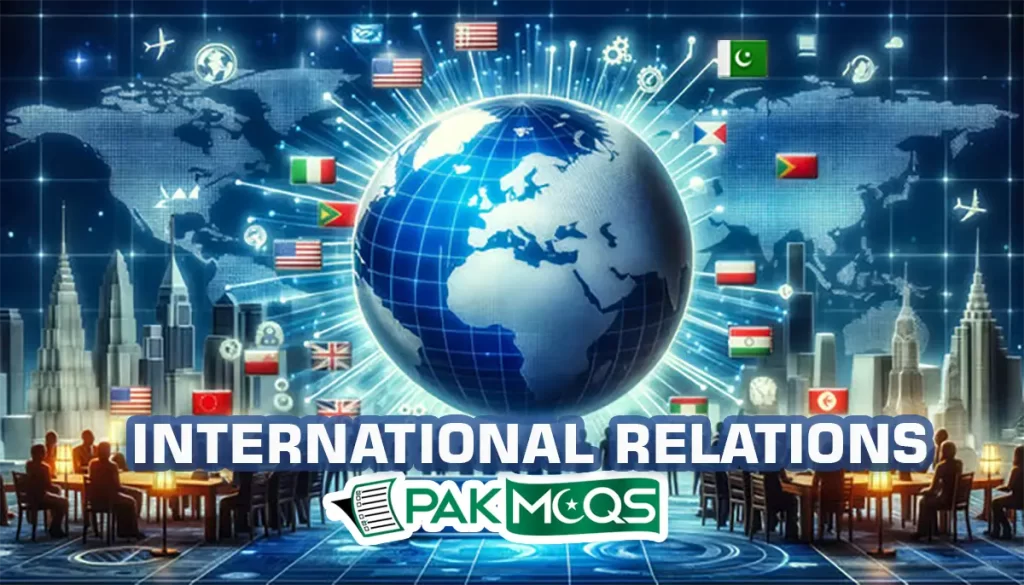A. Through capital controls
B. Through import tariffs
C. Through immigration controls
D. All of the above
International Relations
 International Relations for Preparation – These Multiple Choice Questions are important many competitive examinations, including Competitive Examination (CSS), and university entrance exams. International Relations Mcqs questions are very important for all type of exams conducted by Fpsc, Nts, Kppsc, Ppsc, Spsc, Bpsc, Ots, Uts, Pts, Cts, Ats, etea and other testing agencies of Pakistan.
International Relations for Preparation – These Multiple Choice Questions are important many competitive examinations, including Competitive Examination (CSS), and university entrance exams. International Relations Mcqs questions are very important for all type of exams conducted by Fpsc, Nts, Kppsc, Ppsc, Spsc, Bpsc, Ots, Uts, Pts, Cts, Ats, etea and other testing agencies of Pakistan.
A. Transactions where anything goes
B. Transactions where global trade and finance replace global trade and finance
C. Transactions where international trade and finance replace global trade and finance
D. Protectionist transactions
A. G8
B. IOSCO
C. WHO
D. a and b
A. Companies export material throughout the global
B. Companies find materials, components and services from anywhere in the world
C. Companies pool resources to find new sources
D. None of the above
A. A bond denominated in a currency alien to underwrites
B. A loan provided in special Euromarkets.
C. The supraterritorial denomination issued throughout the IMF (used as its unit of account)
D. Site for financial business offering tax reductions and subsidies
A. By devaluing their currency
B. By relaxing labour and environmental standards
C. By reducing restrictions on repatriation of profits
D. a and c
A. i, ii, iii
B. ii, iii, i
C. iii, i, ii
D. iii, ii, i
A. the sovereign power and authority of national government – the entitlement of states to rule within their own territorial space – being transformed but not necessarily eroded
B. a real dilemma: in return for more effective public policy and meeting their citizens demands, whether in relation to the drugs trade or employment, their capacity for self-governance – that is sate autonomy – is compromised
C. a new geography of political organization and political power is emerging, which transcends territories and borders
D. all of the above
A. capitalism’s insatiable requirement for new markets and profits, which lead inevitably to the globalization of economic activity
B. a shared ecology involving shared en environmental problems, from global warming to species protection, alongside the creation of multilateral responses and regimes of global environmental governance
C. central to any account of globalization since it is a truism that without modern communications infrastructures, in particular, a global system or worldwide economy not be possible
D. the technologically induced erosion of distance and time giving the appearance a world that is in communication terms shrinking
A. was a result of countries appearing as autonomous containers of political, social and economic activity in that fixed borders separate the domestic sphere form the world outside
B. represents a process in which the organization of social activities is increasingly less constrained by geographical proximity and national territorial boundaries
C. involves a complex mix of homogenization and increased heterogeneity given the global diffusion of popular culture, global media corporations, and communications networks
D. was the product of a complex politics involving public and private actors form trade unions, industrial associations, humanitarian groups, governments, and legal experts

